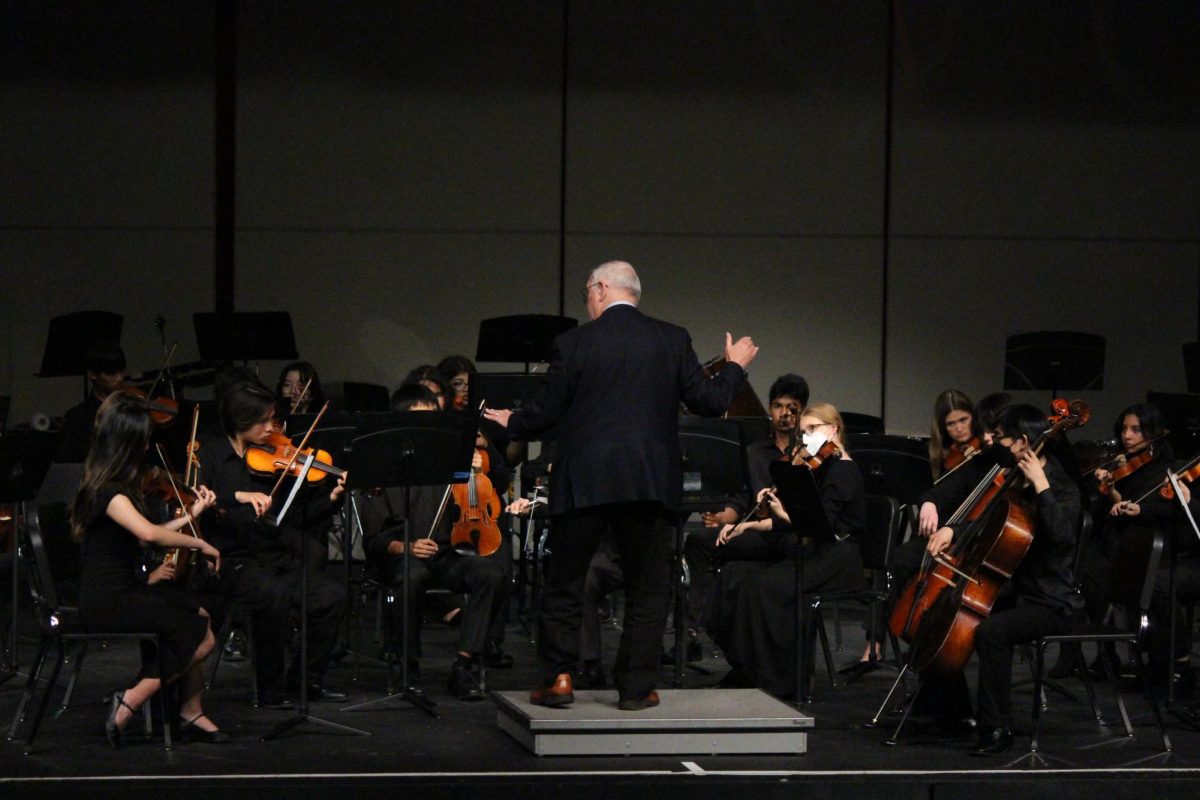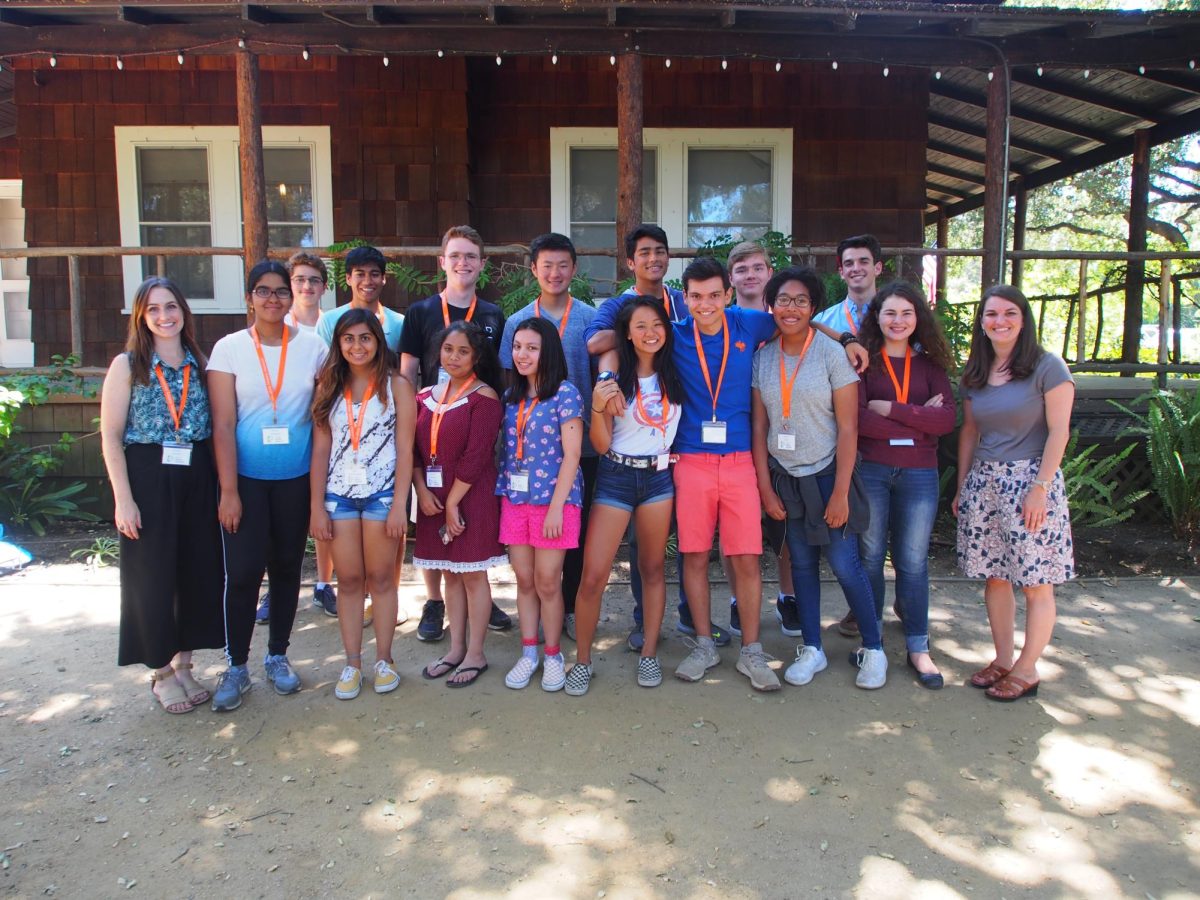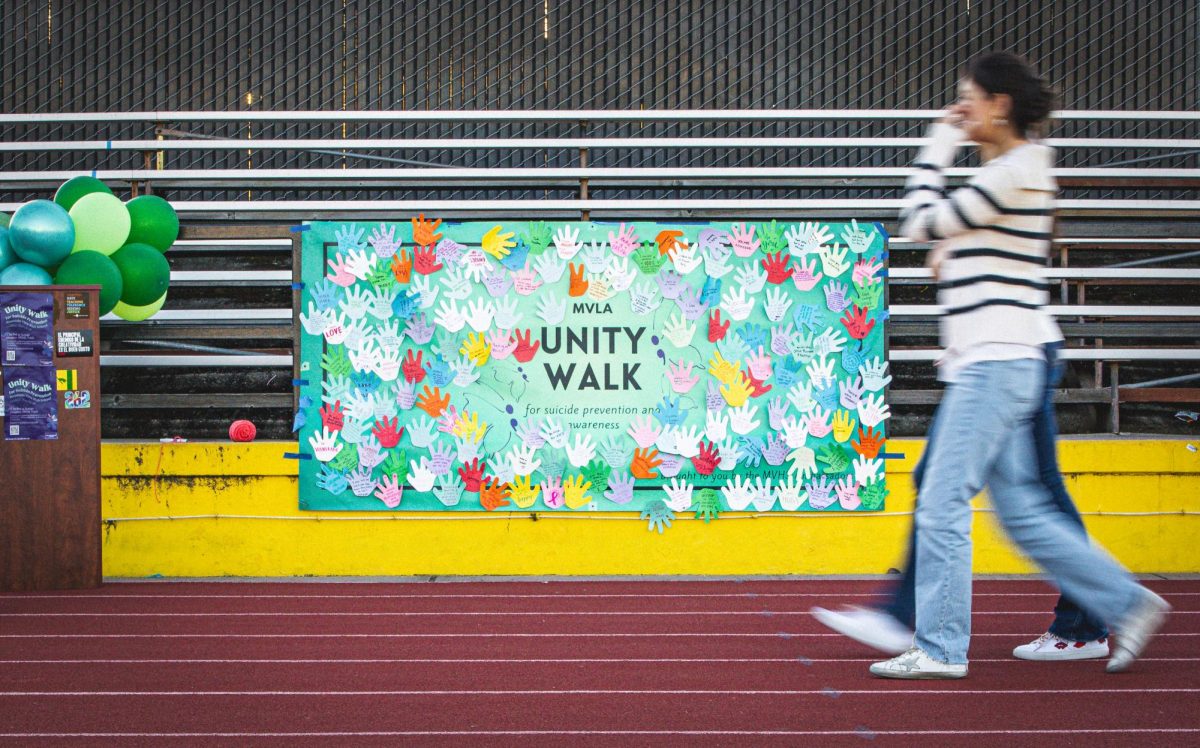On Friday, March 28, former Iranian hostages Sarah Shourd, Joshua Fattal and Shane Bauer discussed and promoted their new memoir, “A Sliver of Light”, in a public forum hosted by the Commonwealth Club in the school’s Eagle Theater. Over the course of an hour, the three Americans shared their harrowing story of resilience in a time of despair.
What began as a hike in the Iraqi mountains soon turned into a two-year ordeal in Iran’s famous Evin Prison for Shourd, Fattal and Bauer. When the three American hikers unwittingly crossed the Iran-Iraq border in 2009, the Iranian government imprisoned them on suspicions of espionage. The news of this situation, fueled by the strained political ties between America and Iran, made international headlines. Caught between the two countries’ political discord, Shourd, Fattal and Bauer endured the brunt of the two sides’ political biases.
“People really projected their own political ideology,” Fattal said. “If you were strongly pro-Iranian, we were spies. If you’re anti-Iranian, then we are totally innocent and Iran was at fault.”
Shourd was held for 13 months, most of which was in solitary confinement, while Bauer and Fattal stayed in prison for more than two years. They identified their unwavering friendship as their main source of comfort and strength during the darkest times of their imprisonment.
“The three of us, our bond is unbreakable,” Shourd said. “I think that that is something that really kept us sane, is having that unbreakable bond.”
In their memoir, Shourd, Fattal and Bauer trace their time in prison through alternating perspectives, detailing the raw emotions of the ordeal. The overarching theme of the book, however, is the universal message that perseverance can overcome any obstacle.
“In conditions that dehumanize you, anything that makes you feel human, anything that makes you feel alive is resistance,” Shourd said.
Over the course of their stay, the three rebelled frequently by going on hunger strikes to demand time with each other. Shourd even exchanged secret messages with other women in the prison and with Bauer, who was her then-boyfriend and is now her husband. One day after realizing that Sarah was likely to be released before him and Fattal, Bauer proposed to Shourd in the prison courtyard with a ring made of thread.
In particular, Shourd forged new friendships with the women in surrounding cells, all of whom were political prisoners like Shourd. They exchanged knocks and messages in a show of solidarity and defiance against the dehumanizing conditions of the prison.
“You start with a few knocks,” Shourd said. “There was one [prisoner] where we had a wonderful exchange this way. We’d go on for hours everyday. She would knock back and add something, and I would copy what she did and add something…Before you knew it, it was like we were composing music together. And to me, it was the most beautiful music in the world.”
Despite these acts of defiance, there were times when the three of themselves surrendered to their imprisonment. One day about five or six months into their imprisonment, a guard accidentally left the door of Shourd’s cell open. This was an opportunity that Shourd had dreamed and fantasized about for months. Yet confronted with the choice to leave, Shourd instead chose to shut her own cell door.
“I just thought, ‘Well, who cares if it’s open? There’s a camera in the hallway, and then there’s another hallway with another camera, and there’s this building, it’s in a compound with these high walls. There’s no way I’m getting out,’” Shourd said. “I just closed my own cell door. And to me, it’s a profound moment of reckoning that I, in a sense, had accepted that I was stuck in this place.”
The title of their memoir refers to the sliver of light that streamed in through the perforated metal of their prison window everyday and slowly moved across the walls of their cells. Shourd came to view that light as a metaphor for life and drew comfort from the idea that it would continue even if she was never released. In this way, Shourd made peace with her surrounding conditions.
“Oftentimes, that light would be just a torment, and other times it was a beautiful epiphanous thing,” Shourd said. “One morning, I woke up and all this light was streaming into my cell and I saw all these dust motes in my cell and they looked like the universe to me and every single one was someone I loved, someone that touched my life in some way, and I had a moment of peace where I just thought, ‘Even if I don’t get to rejoin this stream of life, I know it will go on without me. And it’s a beautiful thing.’”
The Iranian guards continuously interrogated the three Americans with the hope that evidence of espionage would turn up, though many of the questions they asked were absurd for the gravity of the situation. In one interrogation, a guard demanded that Fattal, whose father was born in Israel, prove he was American by spelling “supercalifragilisticexpialidocious.” After months of questioning, their interrogators conclusively determined their innocence but told them that the entire situation had become too political for their release.
In September of 2010, Shourd was finally released from prison on a $500,000 bail due to her “medical condition”. Once back in the U.S., she campaigned relentlessly for the release of Fattal and Bauer. A year later, Fattal and Bauer were tried, found guilty of espionage and sentenced to eight years in prison. But one month after the trial ended, they were released as well. After the psychological trauma of their ordeal, Shourd, Fattal and Bauer felt that they needed to talk about their experiences in prison.
“It was very necessary for me to understand everything that had happened to us, and the book was a structured way to do that,” Shourd said. “There were really difficult parts that I didn’t want to look back at that were painful, but if I hadn’t, I never would have resolved [them]. I feel like I would have been carrying them around for the rest of my life.”
Now, Shourd is a human rights activist who focuses her efforts on spreading awareness about the psychological effects that solitary confinement has on prisoners.
“The UN says 15 days can cause permanent psychological damage,” Shourd says. “Shane [Bauer] and Josh [Fattal] were in for over four months and I was in for over 13 months, and it took a very long time to heal from that….I have to remind myself that I’m in the free world and I have a wonderful vibrant community because sometimes I’m haunted by those months still, to this day. That said, we weren’t physically tortured. We were psychologically tortured.”
Bauer is now an decorated investigative journalist while Fattal is a Ph.D candidate in history at New York University. In spite of all that he has been through, Fattal maintains faith in the potential goodness of human beings.
“[Humans] have the capacity for such horrific evil, and such gorgeous, fantastic beauty,” Fattal said. “It’s up to each one of us to find that beauty within and express it outward.”
With the release of their book, Shourd, Fattal and Bauer are now reaching out to groups in many parts of the country, sharing their story as part of the process of coming to terms with their time as prisoners in Iran.
“There’s something to be said for unearthing all of the pain and looking at it and making sense of it so you can put it down and move forward,” Shourd said.








